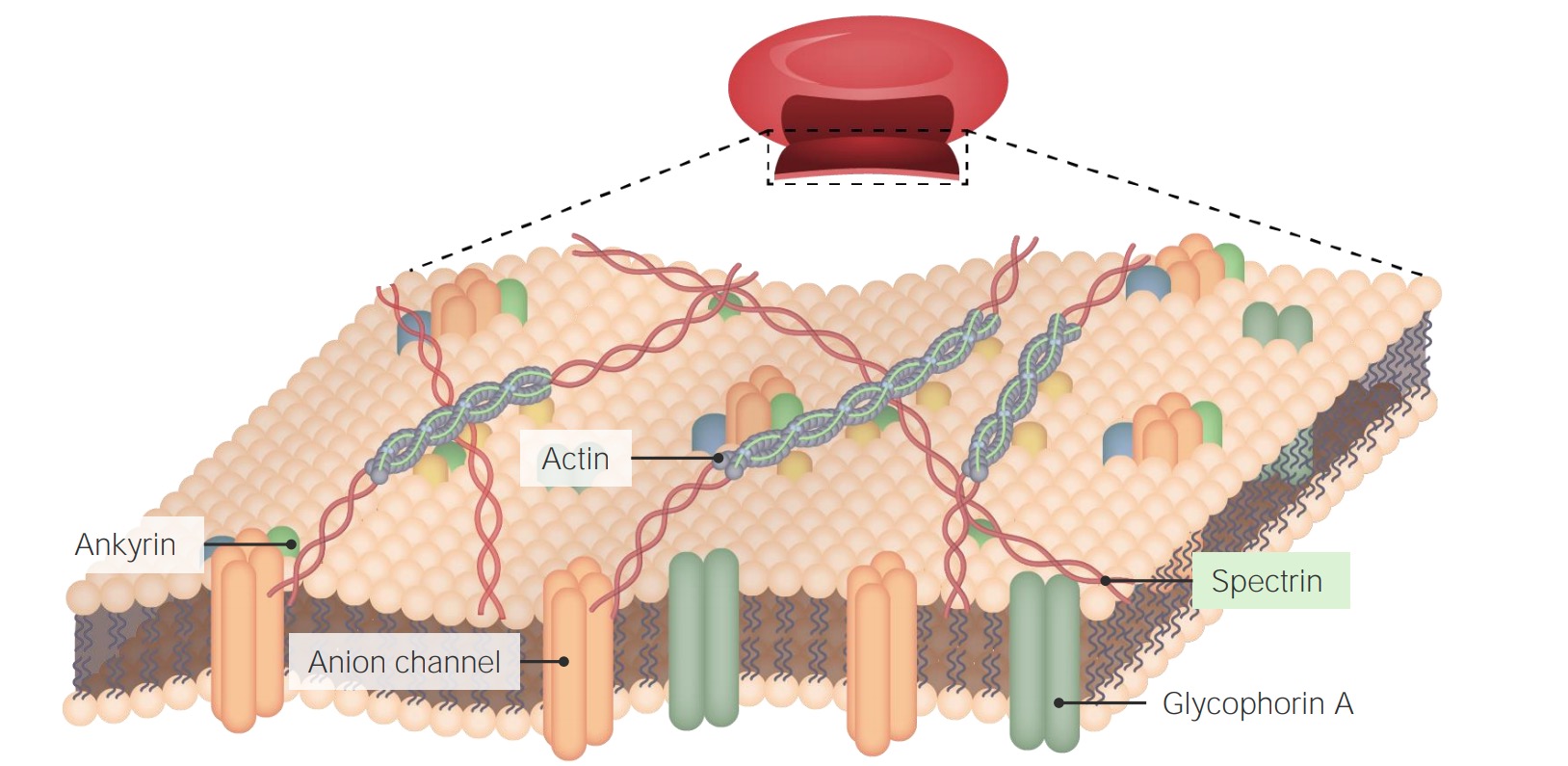Playlist
Show Playlist
Hide Playlist
Role of Cell Membrane Proteins
-
Slides 07 Membranes CellBiology.pdf
-
Reference List Molecular and Cell Biology.pdf
-
Download Lecture Overview
00:00 So what are some of the proteins that we see in transmembrane group of proteins in the membranes. 00:09 So some of them act as channels. Here we have a channel that's simply open channel. 00:15 It allows passage of molecules through the membrane. 00:19 So recall that the internal environment of the membrane is hydrophobic. And it is much wider than the hydrophilic heads. 00:29 So any molecule that is particularly large or hydrophilic has a really hard time making it through that phospholipid bilayer because of the large lipid component in the middle. 00:43 So anything that is pretty charged or polar or large needs a channel protein in order to get into a cell. 00:52 So we have protein transporters. We will see that we also have enzymes embedded in the membrane. 01:01 So these enzymes may receive a signal on the outside and then cause something to happen on the inside, such that when the signal arrives on the outside, we've one molecule come in and is converted into another molecule. 01:16 by that enzyme embedded in the membrane. 01:21 Often these enzymes are protein kinases and we'll introduce those later in the lecture. 01:27 Another type of membrane protein we have are receptors. We have an extracellular receptor here where a ligand, or a communicating molecule will bind to that and cause an effect inside the cell and we'll certainly explore a number of different mechanisms for these sort of receptor proteins that are embedded in the membrane. 01:51 Also we could have our identity markers. So this is proteoglycans, this is a little bit of a closer look. 01:58 We have a membrane embedded protein with a glucose chain or polysaccharide attached to it. 02:04 So proteoglycans help the cells identify themselves to other cells. 02:10 They're sort of like saying "Hey, I'm a red blood cell and I belong in this body. Are you cool?". "I'm cool And we all belong together". They may be involved in recognizing each other so they can actually stick together. 02:21 And say "Well, I'm tissue of the liver and I'd like to be with tissue of the liver". 02:24 So those identity markers are really critical for cells to understand what other cells that are near. 02:32 The other sorts of things we might have are proteins embedded in the membrane that are involved in holding other cells together. 02:39 Imagine if you had cells in your gut that actually weren't held together at all and there was just space between them. So things could pass freely between the cells. 02:49 That wouldn't make any sense because you need the cells in the gut to be actually digesting the foods that you eat and gaining nutrients out of them. 02:57 So many of these embedded proteins will be about cell cell adhesions, cells sticking to each other. 03:06 We also will see cytoskeletelal attachement proteins. 03:10 So, soon we're going to look at some of the cytoskeletal elements, the skeleton of the cell. 03:17 And we have to anchor those skeletal element somewhere, much like our muscles are anchored to our skeleton in order to keep our body up on the bones, we have to anchor these things in the cell membrane also.
About the Lecture
The lecture Role of Cell Membrane Proteins by Georgina Cornwall, PhD is from the course Cellular Structure.
Included Quiz Questions
Which of the following is a role of cell membrane proteins? Select all that apply.
- Providing a passage for large or hydrophilic molecules to move through a membrane
- Providing enzymatic activity
- Cell-cell recognition and adhesion
- Storing genetic material
Which of the following is NOT a type of cell membrane protein?
- DNA polymerase
- Transporter proteins
- Protein kinases
- Cytoskeleton attachment proteins
- Receptors and identity tags
Customer reviews
5,0 of 5 stars
| 5 Stars |
|
1 |
| 4 Stars |
|
0 |
| 3 Stars |
|
0 |
| 2 Stars |
|
0 |
| 1 Star |
|
0 |
Explains concept very well with good analogies that further enhances my understanding.




